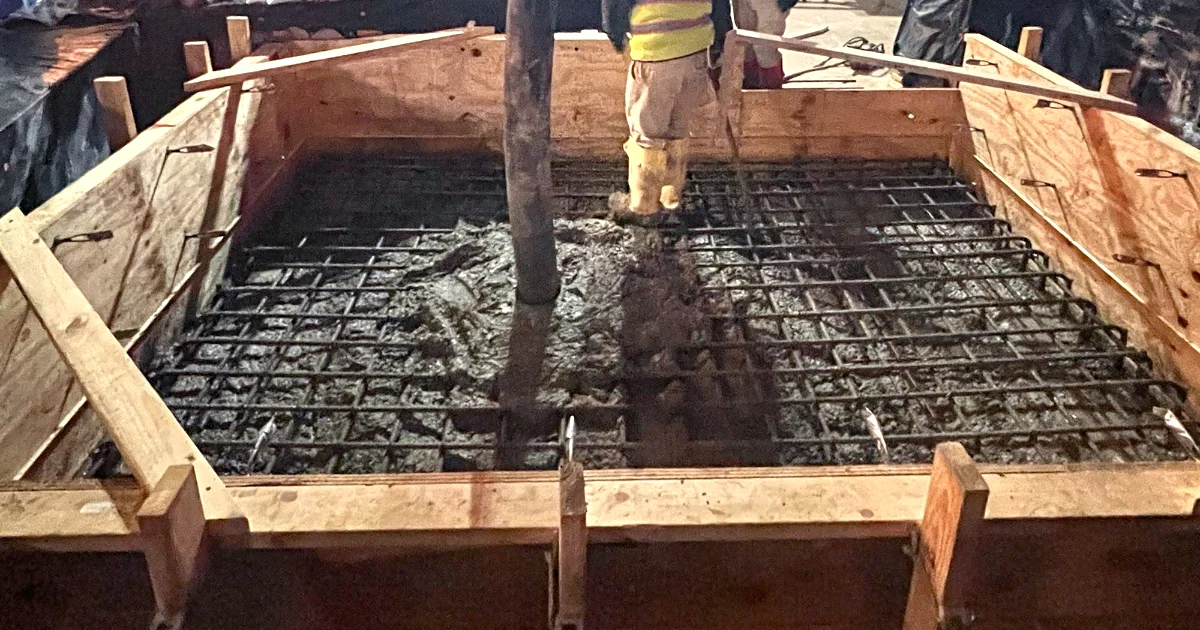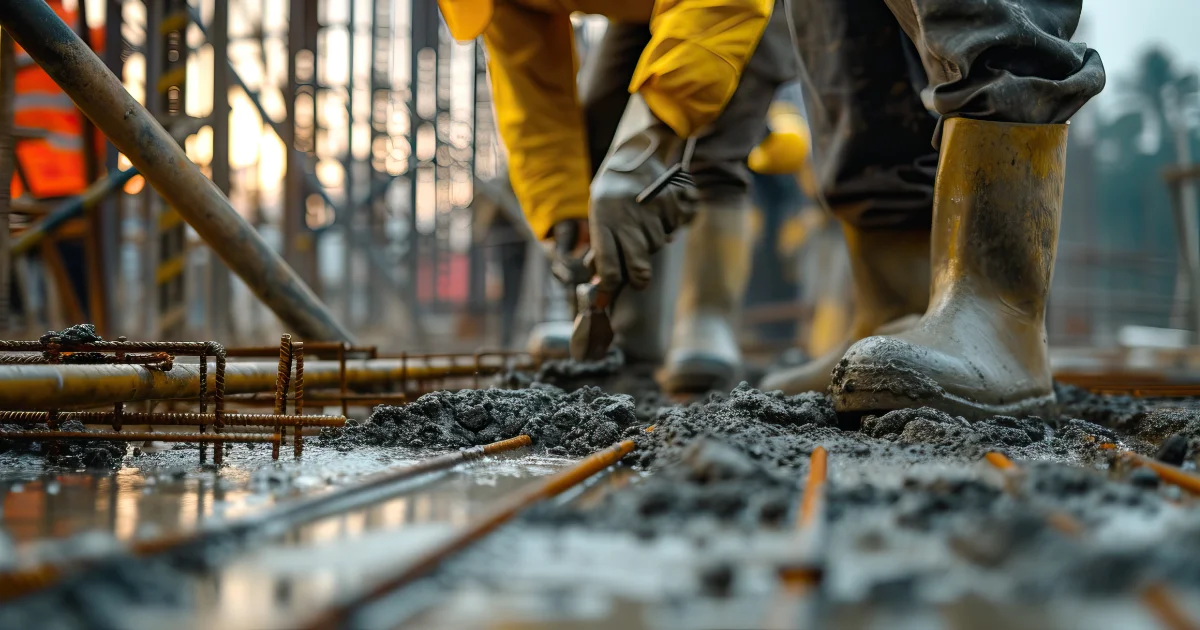
Understanding Concrete Slab Prices
When you're in the market for a concrete slab, whether it's for a new driveway, a home foundation, or a commercial building, you'll likely start by gathering quotes from different contractors.
Here at EW Enterprise, we often encounter customers who are puzzled by the differences in pricing between our quotes and others. What you may not realize at first glance is how the specifications of a concrete slab can affect cost.
Let's dive into the specific aspects of concrete specifications—namely, the size and quantity of rebar reinforcement, the dimensions of perimeter and interior beams, and slab thickness—to understand why these factors are critical in determining both the cost and the quality of a concrete slab.

The Role of Rebar Reinforcement
The rebar, or reinforcing bar, is the backbone of a durable concrete slab. It's used to reinforce the concrete and prevent cracks from forming as the ground shifts or settles. The quantity and size of the rebar directly influence the slab's strength. More and thicker rebar means a sturdier slab capable of bearing greater loads and resisting environmental stresses over time. This added strength comes at a cost due to the increased material and labor required to install the reinforcement. Skimping on rebar can lead to a slab that's prone to cracking and damage.
The Significance of Beam Dimensions
Perimeter and interior beams provide additional support to a concrete slab, especially in structures requiring a solid foundation, such as homes and commercial buildings. The size of these beams, along with their number, determines the foundation's ability to distribute weight and handle stress. Larger and more numerous beams offer more support but also require more concrete and labor to construct, influencing the overall cost of the project. Investing in robust beam construction minimizes the risk of structural failures and costly future repairs.
Understanding Slab Thickness
The thickness of your concrete slab is another critical factor that affects both its cost and performance. A thicker slab uses more concrete, increasing material costs, but it also offers enhanced durability and load-bearing capacity. For projects where longevity and resilience are priorities, a thicker slab is a wise investment. This is particularly true in regions with harsh weather conditions or unstable soil, where a thicker slab can help prevent issues like major cracking and settling.
Overview of Our Light Duty Slab
Our Light Duty Slab is great for lightweight tubular structures, or outdoor living structures like patios and pergolas. It ranges in thickness from 4 to 6 inches and is typically reinforced with #3 rebar at 18-inch spacing.
Because these types of structures still have some weight that rests on the perimeter, this slab features a thickened edge to provide additional support. A common thickened edge size is 12 inches wide by 8 inches deep.
While we call it a Light Duty Slab, be aware that some concrete contractors may give you a quote for this type of slab when quoting a shop foundation. We do not consider this type of slab to be adequate for a structure with any substantial perimeter weight.
For a shop or garage, you need our Heavy Duty Slab.
Overview of our Heavy-Duty Slab
Our Heavy Duty Slab is excellent for shops, garages, or any type of residential or industrial concrete foundation. In addition, this slab is a great choice in cities and HOAs where concrete slabs must be poured according to code.
This type of slab is normally poured at a depth of 5 inches or more, depending on how the slab will be used. For an agricultural building with heavy equipment, 6 inches is an excellent depth, while a manufacturing facility may select an 8-inch depth.
Rebar reinforcement is also highly dependent on the type of structure. A typical Heavy Duty Slab would feature #3 rebar every 18 inches. If very heavy reinforcement is needed, we may install #4 rebar every 12 inches.
Perhaps the most important distinction between a light-duty and heavy-duty slab is the perimeter beam. A typical Heavy Duty Slab features a perimeter beam ranging from 12x12 inches to 12x48 inches. These perimeter beams feature 4 or more runs of #5 rebar, giving them excellent strength to support large, heavy structures.
For homes or commercial buildings with load-bearing interior walls, interior beams are important. These beams are similar in depth and reinforcement, depending on the engineering for that particular building.
For any of our slabs, we offer the option to include a tin/brick ledge. This feature allows the exterior brick or siding to come down below the top of the slab, creating a neat, finished look.
The Bottom Line: Quality vs. Cost
When comparing quotes from EW Enterprise to those of our competitors, it's essential to consider the specifications in each proposal. A lower quote may be appealing at first glance, but it often indicates compromises in the size and quantity of rebar, the dimensions of perimeter beams, and the thickness of the slab. These compromises can lead to a foundation that's less durable and more prone to issues, ultimately costing more in long-term repairs and maintenance.
Conclusion
Choosing the right specifications for your concrete slab is about more than just cost—it's about investing in the longevity and stability of your project. Resist the temptation to skimp on the quality of your concrete foundation. Your future self will thank you.
Ready to upgrade your property with top-quality concrete work?
From foundations and driveways to hardscapes and more, we've got you covered. Give us a call at 817-221-8312 to learn more.

